

How to Pass The Creative Writing Section of Your English GCSE
The creative writing component of the English Language GCSE can leave most students petrified. Having not practiced writing creatively since a much younger age, the dive into creative writing, especially when students are hounded to write academically, can be a challenge.
Often the English Language creative writing component will be phrased as so:
'Write a story about a time you felt overwhelmed' or 'Write a story inspired by the picture below'.
All of the above instructions are relatively vague. For students who are used to being told what to do, and for the English Literature component, asked to explore only a very specific area of the text – the idea of writing free reign is enough of an overwhelming story.
However, students shouldn’t be scared. English is nothing but the study of stories – and while you may feel left in the proverbial dark, actually stories are weaved into your every day life. From posts on social media, to newspaper articles and the texts you study for English Literature. So, there’s nothing daunting. You can weave a narrative just as succinctly and easily.

Here are some tips to consider:
Read anything and everything.
Well, start with novels. When you turn 16, there’s no novel too detailed for you to explore and while I’m not saying you should start off reading War and Peace, you should be reading literature that excites and interests you. Whether it’s The Hunger Games, 1984 or Pride and Prejudice - all of these texts are filled with exciting stories for you to think about. Ask yourself: how does the author create suspense? What about the character is intriguing to you? For example, in The Hunger Games, Katniss Everdeen sacrifices herself for her sister – while she acts bravely, the author still indicates that she is frightened and overwhelmed. There is an internal conflict here that makes the character fascinating.
Be varied in your vocabulary
Words like “nice” and “said” are a bun with no burger, relish or cheese… bland! So, take a look at the example below so you can see for yourself why:
“Good to see you,” she said.
“Likewise,” John said.
Now take a look at the same examples with the “said” removed and some more detail added.
Lucy finished walking her bike up the hill. Drenched and exhausted, she extended a sweaty arm. “Good to see you,” she panted.
“Likewise,” replied John, who shook her outstretched hand lightly and then proceeded to wipe the remains on his tweed trousers.
See the difference?

The five senses rule
When writing creatively, especially when you are being asked to write in the first person, you can describe the immediate area drawing on your five senses; taste, touch, sight, sound and smell.
If in the English GCSE exam, you were presented with a picture of a crowded market place and asked to write a story revolving it, you could open with the following (bonus points if you can spot any literary techniques):
The food market was a buzzing hive; its occupants busying themselves with the buying and selling of sweet smelling delicacies sourced from Toulouse to Timbaktu. I caught a whiff of Jasmine on the wind and was delighted to find a pastel painting of Turkish Delight, coated with a light dusting.
“You like?” cried the seller, ignoring the three other customers in the queue and trying to entice me in. I waved an apologetic hand and squeezed my way deeper into the market.
I was trying to remember to the words for ‘excuse me’, but had forgotten the teachings of the busboy at the hotel. The noise built into crescendos at every stand, with gossip, commands and bartering taking place in a rich dialect I couldn’t comprehend. Each and every direction I turned, I was jagged with an elbow or forced to fake-interest in a stall in which I had none. I was becoming overwhelmed, so I stole into a small crevice on the side of the market to seek respite.
Obviously, you will need to write more than this. But try to make your language as rich and engaging as possible.
Make sure to reread your work
Your creative writing component will be judged on spelling, grammar and punctuation, so make sure that you read your work once you’re done to iron out any potential mistakes.
If you want a little bit more help, Tutor House offers world-class English GCSE tutors. To find out more, or to book your tutor today, call 0203 9500 320

Alex is the founder and director of Tutor House and has a degree in Psychology. He has worked in the educational industry for 14 years; teaching Psychology for 8 years at a school in London. He now runs Tutor House, after setting it up in 2012. Alex still tutors every week, he writes for the Huffington Post and has appeared on the BBC and ITV to discuss educational topics. Alex is an educational consultant and UCAS expert, he’s worked with hundreds of students over the years. He’s obsessed with squash, but is distinctly average.
Related Posts

Get in Touch!
Thank you! Your submission has been received!
Oops! Something went wrong while submitting the form
- Apr 30, 2019
Creative Writing | GCSE English Revision Tips | General Advice
Updated: Aug 5, 2021
How to revise for Creative Writing in GCSE English Language.

With the GCSE language paper coming up, the creative writing element is one that can easily be overlooked. Perhaps you wonder whether you can really learn how to do well in this part of the section or if it is simply down to talent. However, the key to excellent creative writing exam answers is imagination – using your creativity to come up with things to write.
A struggle that students I teach often find with creative questions is that the prompts are typically broad, and image prompts can be sparse with little detail. Sometimes they might spark inspiration, but sometimes you might be looking at them in despair, wondering what on earth you could write about.
Now, one huge advantage of these open-ended questions is that they allow you to have the prerogative to take the answer where you want it to go; there is no way for them to catch you out for not knowing any information. The broad question or image should not be restrictive: for instance, in a description you do not have to stick exactly to describing what you see; using poetic licence to imagine what might be there is strongly encouraged.
General Hints and Tips for Creative Writing at GCSE
A general piece of advice that I give to my students is to plan the structure of your answer. When you hear “creative writing”, you may not think that a plan would be necessary. However, in the mark schemes of all exam boards, the phrase “well controlled paragraphs”, and “well-structured answer” almost always features in the top band. Of course, you do not need to plan out all your similes and metaphors, but setting yourself out a basic structure of what to say in each paragraph will help it to read more clearly.
A key way to make it clear to the examiner that you know what you are doing is through consistency . Ensure that you have the same tone throughout your creative piece, and that your narrative style and tense remains the same. This way, you can show to the examiner that your narrative choices have been deliberate, and based on the purpose and audience of the brief you have been given.
Each GCSE syllabus has a different way of assessing for the creative writing element. Find your exam board below for some tips on how to tackle the specific exam questions you will be presented with.
How to write a description or a short story - AQA exam board
For the AQA creative writing section in particular, you will be asked to write either a description based on an image, or a short story. For the image description, as well as having a good standard of language, your marks will lie within your ability to use a wide range of language techniques: think metaphors, similes, sensory language, imagery, alliteration etc.
A description of this kind requires you to be very imaginative. If you are stuck on where to begin, look at the image and think about what mood you could extract from it. Does it look spooky? Does it look dangerous? Once you have identified this, try to reflect this mood in the tone of your description.
Some advice that was offered in the November 2017 examiners' report was to ensure that your writing is not too formulaic. For instance, try not to write “I can see… I can smell…” just to ensure you are filling in sensory language: this applies to both the short story and the description. This is perhaps the hardest element of the AQA creative language question: fulfilling all the criteria while making it flow and work as a creative piece.
My advice would be to read over your work after you have finished and try to imagine you are just reading this for fun, outside of the exam context. If it works as a piece of creative writing rather than just as an exam answer, you should be on the right track.
How to answer prompt-based questions - Edexcel exam board
The imaginative writing section of Edexcel requires you to take on a broad prompt, such as the 2017 question “write about a secret” with the aid of an image provided.
For this question, the mark scheme is fairly open as to the approaches you can take. It allows writing in the form of a description, an anecdote, a speech, or a narrative. The image is also only there to provide inspiration – you are not required to reference it directly in your answer if you do not wish to.
A good revision strategy for this question would be to pick a couple of forms that you want to focus on, and practice them before the exam. Then you could pick the form most suited to the question you chose in the exam, and you will be an expert in writing for this form: something that will immediately boost your marks.
A large part of fitting in with the mark scheme is “using appropriate techniques for creative writing”. This may include using a wide vocabulary, imagery, alliteration, similes and metaphors in order to describe and explain.
How to write for purpose – OCR exam board
For the OCR specification, the focus is on writing for purpose and audience . This is a large part of what you are being tested on, so you must always ensure that you identify these two things before you start writing.
In 2017, the options were to write a blog post describing how you successfully overcame a challenging situation, and to write a letter to an employer applying for a job you have always wanted. These two tasks clearly have significantly different purposes and audiences. A blog post would be for the general population, and the tone will need to be readable and informal, whereas the letter to the employer will need to be formal and tailored to the individual reader.
The mark scheme for these questions require you to cover the following areas: tone, style, register, and organisation. The first three in this list will need you to adapt for the purpose and audience. While going over past paper questions, if you’re unsure on how you should write, look up examples of that form online. For instance, looking for a letter to an employer online should give you some good examples, as would looking up examples of newsletter entries or blog posts.
My best piece of advice for OCR’s questions is to practise. Ask a parent or friend to come up with some different forms and audiences for you to write in, and practise adapting your tone, style and register for the different audiences.
OCR have also provided some helpful resources for creative writing (GCSE English Language 9-1 syllabus) .

Blog Post Crafted by Genevieve
Genevieve is currently working towards her bachelors in English Literature at the University of Warwick .
Born in Coventry, she now tutors English SATs and GCSE in her free time, as well as working for the university as an outreach ambassador in local schools.
She also enjoys playing piano and flute, and often performs as a backing singer at local gigs.
Whenever she has a moment to spare, you might find her driving to the beach or catching up on her reading!
Recent Posts
GCSE English: Tips for ‘Macbeth’ Revision
How to Get the Best Marks in GCSE Chemistry
Tips for Overcoming Maths Anxiety

Beyond GCSE Revision
Gcse-grade revision from beyond, powered by twinkl, gcse creative writing tips.

GCSE creative writing is our favourite aspect of KS4 English here at Beyond. While it may be our favourite, we understand that it can be daunting for some students. To ensure everyone feels comfortable when expressing themselves, we’ve collated three top GCSE creative writing tips that are sure to coax out your inner author!
Show Not Tell
Your creative writing will be more engaging and sophisticated if you ‘show, not tell’.
But how do you do this?
- Vivid verbs – action or ‘doing’ words.
- Adventurous adverbs – words usually ending in ‘ly’ that tell us how the action has been done.
- Ambitious adjectives – describing words that add details about appearance, personality or condition.
GCSE Creative Writing Tip 1: Vivid Verbs
Describe the action using a vivid verb to make it interesting and give more information.
e.g. The crowd screamed Beyoncé’s name.
This adds extra information in a creative way. It tells us what the crowd was like and how they were feeling.
Your turn: think of as many as you can…
GCSE Creative Writing Tip 2: Adventurous Adverbs
Now, add some adventurous adverbs to add further detail and information.
e.g. Deafeningly, the crowd screamed Beyoncé’s name.
This adds extra information, building a clearer picture for the reader in just one word!
GCSE Creative Writing Tip 3: Ambitious Adjectives
Now, add some ambitious adjectives to add further detail and information.
e.g. Deafeningly, the large, boisterous crowd screamed Beyoncé’s name.
This builds upon the image, adding extra information to help the reader imagine what is happening.
Try changing these character descriptions from telling to showing:
- Jonathan had ginger hair. He was very tall. He was feeling happy because it was the end of term.
- Louise was dressed in a ball gown ready for the school prom. But she was feeling sad because her cat had died.
Beyond’s GCSE Creative Writing Resources
Now it’s time to put these GCSE creative writing tips to use! Below is a Beyond resource that you might find helpful!
GCSE Creative Writing: Vocabulary ‘Show Not Tell’ Lesson Pack

Everything else you might need can be found in our GCSE creative writing category . You can find our other GCSE English blogs here and don’t forget to subscribe to Beyond for access to thousands of secondary teaching resources. You can sign up for a free account here and take a look around at our free resources before you subscribe too.
Share this:
- Click to share on Twitter (Opens in new window)
- Click to share on Facebook (Opens in new window)
- Click to share on LinkedIn (Opens in new window)
- Click to share on Pinterest (Opens in new window)
Leave a Reply Cancel reply
Discover more from beyond gcse revision.
Subscribe now to keep reading and get access to the full archive.
Type your email…
Continue reading

How to get a grade 9 in GCSE English creative writing…
- January 29, 2024
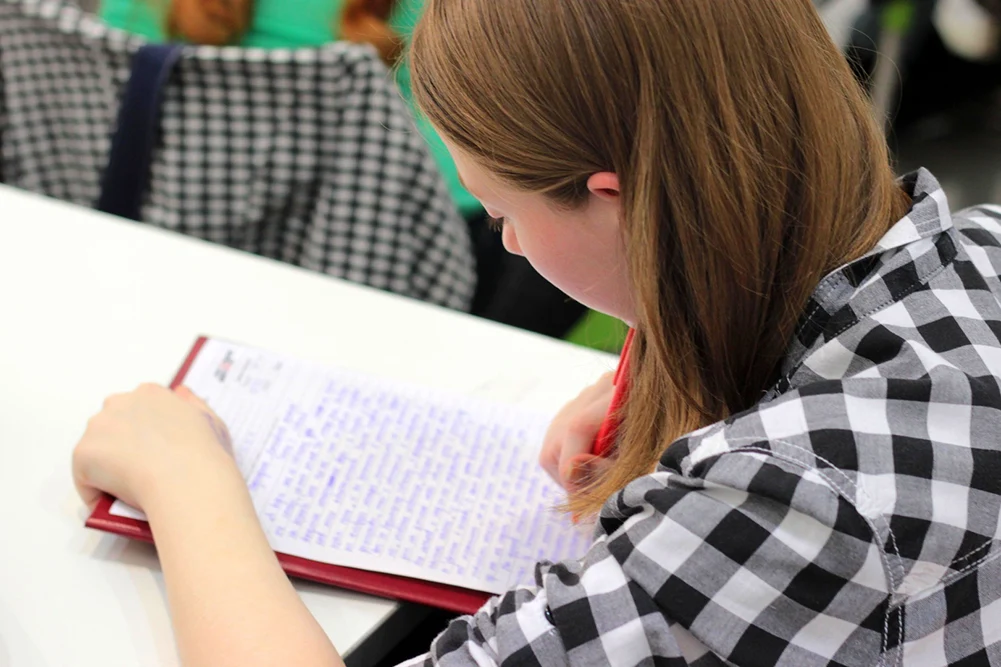
A common mistake students make is TELLING the examiner how a character feels (e.g. ‘Johnny was scared) instead of SHOWING how they feel through descriptive language.
But here’s the other thing…
Examiners aren’t looking for a really really interesting story – IN FACT – the boring storylines often perform best!
But a boring storyline – doesn’t mean a boring description.
And an interesting description – comes from SHOWING not TELLING.
Because showing how the character feels – is much more engaging to read,
And this – is what helps students stand out to the examiner so they can reach a grade 9!
But what do we mean by showing instead of telling? How does this look in practice?
Let’s take a look at an example – where the plot of the story is the main character being chased through a haunted forest.
Here’s what a grade 9 answer would include
Table of Contents
The key components of a grade 9 creative writing answer.
Picture your character being chased through a haunted forest. Instead of just saying they are scared (i.e. telling the examiner how they feel), let’s use simple yet effective techniques to bring the setting to life.
i. Descriptive Words…
Using describing words to paint a picture of the eerie forest is one way you can show the character’s fear.
Instead of saying ‘Johnny is scared’ – talk about the overbearing trees, or a spooky house in the distance, or describe the darkness within the forest etc.
These help paint a picture in the examiner’s mind – something which they are looking for from grade 9 students!
ii. Action Words…
Focus on what Johnny does that shows they are scared.
Describe HOW he runs away from something he sees in the forest, or the look on his face when he hears a noise, or the scream he makes when he sees something move!
It doesn’t just have to be these – but anything that SHOWS the examiner what is going on in a descriptive and exciting way…
Rather than just TELLING them this happened…then this…then this – because that’s just boring!
iii. Sensory Details…
Engage the reader’s senses.
For example – describe the sounds of a crow, the wind in the trees, or how the surroundings affect Johnny’s body as he runs.
These details make the story more exciting. Essentially – they are the icing on the cake!
They build on everything from before, and actually start to make the setting dynamic and alive.
Why Showing is Better Than Telling
Remember – this concept doesn’t just apply to being chased in a forest…
It goes for ANY storyline in creative writing.
If your character is relaxing on a beach – SHOW the examiner HOW they are relaxed – don’t just tell them that the character is relaxed!
If your character is playing football – SHOW the examiner HOW they feel while playing – don’t just tell them that the character is playing…
You get the idea!
Because rather than simply stating the character’s emotions – ‘Josh was happy to be playing football’ – showing allows us to explain why they feel a certain way – ‘The sun was beating down on the pitch, Josh had just scored a great goal and his massive grin let everyone know how happy he was as he wheeled away in celebration’ – I’m sure you can see which one is better!
Here are 2 more rules to keep in mind when doing this:
- Engaging the Examiner: 80% of the time – show the examiner instead of just telling – you won’t always be able to do it which is why we say 80%
But anything less than that and you run the risk of a much lower grade!
- Create a Memorable Scene:
The scene itself doesn’t have to be very special or interesting – but you need to make it sound interesting.
It can be as simple as…someone’s house, garden, your local town, a forest, a beach etc.
But you need to bring the place to life using all the points we mentioned above – in order to make an otherwise boring place, extremely interesting!

Let’s recap on what we mean by ‘descriptive language’
To further understand the importance of descriptive language, let’s break down the elements that contribute to creating an immersive scene…
- Visual : what can be seen that adds to how the character feels (e.g. the big trees representing fear, or the scorching sun representing happiness)
- Action : What is the character doing that shows how they feel (e.g. running away = scared, dancing = happy etc.)
- Sound : Engage the examiner’s ears with a description of sounds (e.g. the rustling of the trees, the cheering of a crowd, the loud traffic etc.)
- Sense : Talk about how the setting affects the characters body (e.g. shivering = cold, goosebumps = excited or scared), what can the character smell? Etc.
Mastering the Craft of Creative Writing
Remember…
Creative writing in GCSE English isn’t about coming up with the most interesting storyline.
They’re not looking for you to come up with the next Harry Potter or Lord of the Rings in your exam!
They just want you to pick a boring storyline – and make it interesting for the examiner to read!
Exactly how we did above with Johnny being chased in the forest.
Because is being chased in the forest a new, or really exciting idea? Not really.
But can we make it interesting to read? Of course!
So if you’re a student currently struggling with creative writing – make sure to read through this again so you’ve understood it all!
And if you’re a parent – make sure to forward this to your child so they can see what it takes to reach a grade 9!
And Lastly, if you wanted to attend a free, live grade 9 secrets MasterClass (for parents and students) where we’ll be going through other revision methods that helped over 400 of our students reach a grade 9…
Just click here to learn more: https://jpwtutors.com/register-grade-9-secrets-org
I hope this helps and hopefully we’ll see you soon in one of our free classes!

- Jacob Williams
Jacob Williams is the founder of JPW Academy and the creator of the English Excellence method, which helped over 400 students reach a grade 9 last year. After graduating from Oxford and teaching at a private school, he made a commitment to help as many students as possible reach top grades. He has published a revision guide, Mastering Macbeth, which is a #1 Amazon bestseller.
Related Posts

Ultimate Analysis to Reach a Grade 9 in GCSE English Literature
- April 8, 2024

The BEST Way to Think of an Idea for GCSE English Creative Writing
- March 13, 2024

How to get a grade 9 in GCSE English literature!
- February 17, 2024
25 Awesome Story Ideas for Creative Writing for GCSE English Language
by melaniewp | Jun 23, 2013 | Creative Writing , English Language Exam , GCSE , IGCSE , Writing | 0 comments
ALL ABOUT CHARACTER

[1] Old man loses his last picture of himself with his long dead wife. This could link to ‘Long Distance’ by Tony Harrison. Trying to find it, he goes through her things. This is one for flashback. He discovers secrets, or that she has left him a series of letters/notes for after her death. Start this when he realises he’s lost the picture.
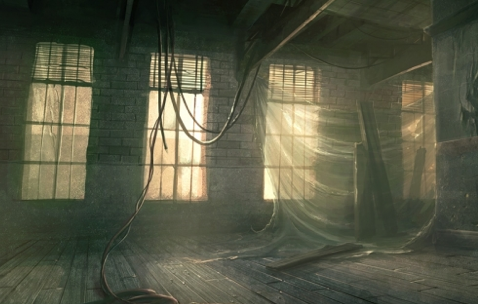
[3] A woman’s (or man’s) jealousy of her (or his) best friend takes over their life . Could link to ‘Othello’ or ‘Medusa’. Think about why. Start this when the woman is with her friend in a frenzy of jealousy…

[4] A model who has always been obsessed with her looks has acid splashed in her face and is disfigured. Could link to ‘Les Grands Seigneurs’, or ‘Mirror’ by Sylvia Plath. Start this with her looking in the mirror then opening her front door… By the way, this story is true. The woman in the picture is called Katie Piper .

[5] Fear of heights : nine year old with family who are in visiting a famous tall tower for the first time. The rest of her family want to go up the tower, but if the child won’t go up, someone will have to stay behind with them. Start this at the foot of the tower…
Want more ideas? Get a complete set plus a teaching scheme with model essays and all resources on my TES Resources shop here .

[6] Small child really wants cake but has been forbidden from taking it down from the shelf. Start this story with the child lusting after the cake, which you should describe – baking, decorating etc – in delicious detail. [ read a short, very funny version of this here ]

[7] A man is obsessed with a woman who does not love him back (or the other way round) . Could link to ‘Havisham’ by Carol Ann Duffy, ‘Give’ or ‘Alaska’ by Simon Armitage or ‘The River God’ by Stevie Smith . Start this when he realises she doesn’t love him back or when he decides to do something about it – get a haircut, stop eating raw onions, go to the gym, pretend that he also loves ‘horoscopes’ and ‘shopping’…

[8] Dangerous Ambition (links to Macbeth). Want the lead role in the school play (or to be head girl/boy)? What will you do to get it? Start this when you realise the lead is up for grabs but you’re not the first choice.

Racing Car driver (motorcross, road or drag racer) is up against his old teammate, now his main rival. Driver needs to win this one or it’s the end of his career. He sees that one of the mechanics on his rival’s car has fixed something up wrong. What does he do?

[9] Jealous woman (or man) chases husband (wife) to find out where they’re going. Could link to ‘Medusa’, ‘Havisham’, or ‘Othello’. Start this story when they decide to chase / follow. Use flashback, or recollection to explain why.

[10] Small child really wants to go to another child’s birthday party but there’s a problem. He has to go to his dad’s that weekend/hasn’t been invited/has to go to the dentist instead. How does he deal with or solve it? Start this story at the moment where the child realises he can’t go. [ read a short, hilarious one here ] III Lost

[11] An old man, who has never cooked or cleaned for himself, has just got home after his wife died (of old age, in hospital). You could link this to ‘Old Age Gets Up’ by Ted Hughes. Now he has to try to do housework – cook, etc. Could be comic / tragic.
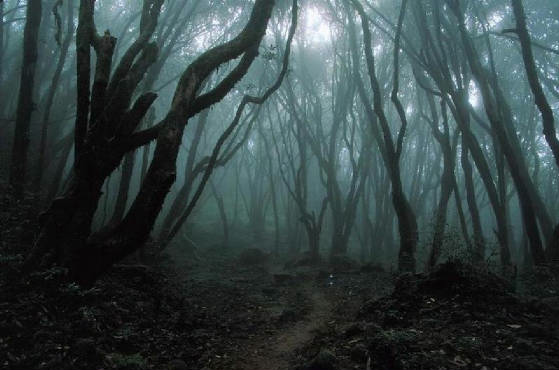
[12] You go for a forest walk (e.g. on a Geography trip or DofE) with someone you don’t like much from school and get lost. Could link to Robert Frost’s poem ‘The Road Not Taken’, ‘Storm in the Black Forest’ by D.H. Lawrence or ‘Wind’ by Ted Hughes. Start this story just before the main character begins to suspect they are lost. Start funny, ends up scary as it starts to go dark. Get describing words for a forest story here .

[13] Parent-Child: In a busy town centre, a mother loses her child who has previously been annoying her . Link this to ‘Mother A Distance Greater…’ by Simon Armitage, ‘Catrin’ by Gillian Clarke or ‘My Father Thought it Bloody Queer’. Start this with the child’s tantrum, mother’s thoughts then quickly move to realising the child is gone.

[14] World famous BMXer (or other sports person, footballer, skateboarder, surfer) is in a car crash – or other accident – and loses his leg. Will he ever ride again? This can link to ‘Out, Out-‘ by Robert Frost. For more on the guy in the photo see this video . Start this story when he wakes up in a hospital bed.

[15] A bsent father returns trying to spend time with his kids. How do they react to seeing him after so long? [this idea is done beautifully in the story, ‘Compass and Torch’ in the AQA anthology Sunlight on the Grass]. You could also link this to ‘Follower’ by Seamus Heaney. Start this when the re’s a knock at the front door.

[16] You win a million pounds on the lottery. Everyone you know wants some. What would you buy? Friendships are ruined. Then you are robbed… Start this when you check your bank balance and there are sooooo many noughts at the end it looks like a bank malfunction. IV Coming of Age
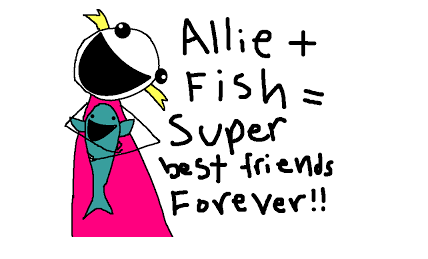
[17] Death of a pet. Ferociously funny, very short story about a girl and a fish [ here ]. Start this when you find the pet… dead, or just before. You can use flashback – when you first got the pet, etc.

[18] Learning a secret you wish you’d never found out – e.g. finding texts on your dad’s mobile from his girlfriend while your parents are still married – or learning that your mum is planning to secretly leave your dad. Start this when you’re just idly messing with the parent’s phone or laptop.

[19] falling in love for the first time , as in Romeo and Juliet. Start this when they see each other or their first proper meeting. Link this to ‘Sonnet 18 Shall I Compare Thee’, ‘Sonnet 116 Let Me Not’, ‘Quickdraw’ or ‘Hour’, by Carol Ann Duffy or ‘To His Coy Mistress’ by Andrew Marvell.

[20] The first time you have to do a really disgusting piece of housework / cook a meal for yourself and how you tackle it. Start this when you realise that no one else is going to do this foul job except you. Read a description of cooking a meal here .
V The Chase / Monsters

[21] You’re camping with your friend in the woods. Then you hear a noise outside (wolves, person, etc). Start this as you’re getting settled to go to sleep – then you hear snuffling (or whatever). Read Bill Bryson’s hilarious account of this exact event, and also an account of surviving a bear attack from the OCR exam paper here.

[22] You have something someone else wants – gold, diamonds etc. They chase you to get it. You choose the landscape: city, ruined derelict warehouses, Brazil, forest, cliffs etc. Start this at the moment you realise someone is following you. You can link this to the final chapter of Lord of the Flies .

[23] You are the last surviving human after the zombie/vampire apocalypse. Now they have found you. This is the plot of ‘I Am Legend’. You can link this to Edwin Muir’s post-apocalyptic poem ‘Horses’, ‘Wind’ by Ted Hughes or the final chapter of Lord of the Flies . Start this at the moment you (or the main character) realises someone is coming towards your hiding place.

[24] The King is a tyrant who has killed your family. Now you will take revenge . Start this story as you are just about to go through the city walls.
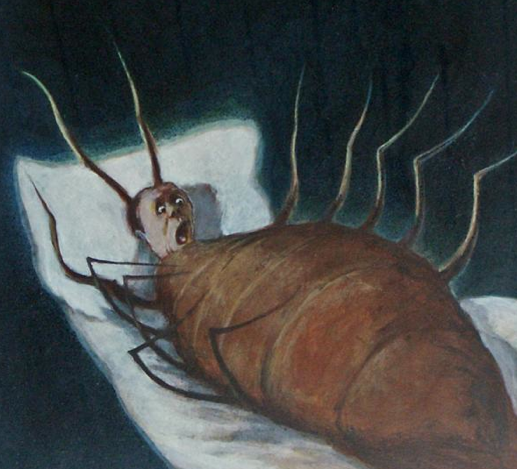
[25] You wake up and discover you have been turned into a giant insect. How does your family react? This is the plot of Kafka’s Metamorphosis. Read this here . Start at the point you wake up, and gradually realise what has happened.
Submit a Comment Cancel reply
Your email address will not be published. Required fields are marked *
Save my name, email, and website in this browser for the next time I comment.
Recent Posts
- Example English Literature Essays For Oxbridge Applications and Coursework
- What is Pathetic Fallacy? Simple Explanation for GCSE, IGCSE, and Common Entrance
- Writing to Describe Photographs of Interesting Places
- Storm on the Island Heaney: Context, Interpretation and Annotation Analysis
- The Prelude, Wordsworth: Context, Analysis, Annotation and Likely Exam Questions GCSE Poetry Exam
Recent Comments
Resources you can trust
Writing skills
Develop students' fiction and non-fiction writing skills with our versatile GCSE writing resources.
Teach GCSE English Language students to produce clear and coherent descriptive or narrative texts and use language creatively and imaginatively to develop their creative writing skills.
Our non-fiction writing resources will help with teaching students the fundamentals of specific text types, including letters, articles, arguments and persuasive speeches.
Our writing techniques resources cover all the bases, from proofreading to structuring ideas, writing paragraphs, using evidence and a range of literary and rhetorical devices.
Developing writing skills
Popular writing resources for gcse.
- Student Hacks
- Studying & Revision
- Work & Jobs
10+ GCSE creative writing ideas, prompts and plot lines

Getting a good GCSE creative writing plot going can be difficult, here are some ideas to help you out.
Ahead of your exams, here are a selection of GCSE creative writing ideas and prompts to hopefully provide some inspiration.
The Lost Timepiece
Prompt: In an old, dusty attic, a teenager discovers a mysterious pocket watch that doesn’t seem to tell the correct time.
Potential Story Directions:
- The watch could transport the teenager to different moments in history whenever it's wound.
- The watch might belong to a long-lost relative, leading to a family mystery.
- The watch could be counting down to a significant event, and the protagonist must figure out what is about to happen.
The Secret Garden Door
Prompt: Behind the overgrown ivy in the school's garden, a student finds a door that wasn't there before.
- The door could lead to a magical world, offering an escape from everyday life but with challenges of its own.
- It might be a portal to the past, showing the school's history and secrets.
- The door could be a metaphorical passage to self-discovery, revealing hidden aspects of the character’s personality.
The Last Message
Prompt: A character receives a mysterious message in a bottle on the beach, written in a cryptic language.
- Deciphering the message could lead to an adventure, perhaps a treasure hunt or a rescue mission.
- The message might be from a distant land or time, offering insights into an ancient or futuristic world.
- It could be a personal message from someone significant in the character’s past, triggering a journey of emotional growth.
Midnight at the Museum
Prompt: A night guard at a museum notices that the exhibits come to life after midnight.
- The guard could interact with historical figures, learning about history firsthand.
- There might be a plot to steal an exhibit, and the living exhibits help to thwart it.
- The phenomenon could be linked to a supernatural event or an ancient curse that needs resolving.
The Forgotten Melody
Prompt: A pianist discovers an old, unplayed piano in a neglected music room that plays a melody no one seems to recognize.
- The melody could be a key to unlocking forgotten memories or a hidden past.
- It might be a magical melody, having various effects on listeners.
Each of these prompts offers a starting point for creative exploration, allowing students to develop their storytelling skills in imaginative and engaging ways.
Galactic Storm
Prompt: Astronauts on a mission to a distant planet encounter a bizarre, otherworldly storm.
- The storm could have strange, mind-altering effects on the crew.
- It might be a living entity, communicating in an unprecedented way.
- The crew must navigate through the storm to discover a hidden aspect of the universe.
Unearthed Powers
Prompt: A teenager suddenly discovers they have a supernatural ability.
- The power could be a family secret, leading to a journey of self-discovery.
- It might cause conflict with friends and society, forcing the protagonist to make difficult choices.
- The ability could attract unwanted attention, leading to a thrilling adventure.
Reflections of Reality
Prompt: A story that mirrors a significant real-life experience involving friendship or a pet.
- The story could explore the depth of human-animal bonds or the complexities of friendship.
- It might involve a heartwarming journey or a challenging ordeal.
- The protagonist learns valuable life lessons through these relationships.
Chronicle of Times
Prompt: A character discovers a way to travel through time.
- Traveling to the future, they encounter a radically different world.
- In the past, they might inadvertently alter history.
- The story could explore the moral and emotional implications of time travel.
Apocalyptic Event
Prompt: A natural disaster of unprecedented scale threatens humanity.
- The story could focus on survival, resilience, and human spirit.
- It might involve a journey to avert the disaster.
- The narrative could explore the societal changes that occur in the face of such a disaster.
The Unsolved Case
Prompt: A detective starts investigating a complex and mysterious murder.
- The investigation uncovers deep secrets and conspiracies.
- The detective's personal life might intertwine with the case.
- The story could have a surprising twist, challenging the reader's expectations.
Retold Fable
Prompt: Modernize a classic fable or story, such as the Boy Who Cried Wolf, in a contemporary setting.
- The story could be set in a modern city, exploring current social issues.
- It might be told from a different perspective, offering a fresh take on the moral of the story.
- The narrative could blend the original fable with current events, creating a powerful commentary.
Forbidden Love
Prompt: Two characters from vastly different worlds fall in love, against all odds.
- Their love could challenge societal norms and expectations.
- The story might explore the sacrifices they make for each other.
- It could be a journey of self-discovery and acceptance in the face of adversity.
Thomas Brella is the founder of Student Hacks, starting the website in 2013 while studying at the University of Brighton to share tips and tricks on life as a cash-strapped student. He's now spent over 10 years scoping out the best ways to live on a budget
Follow on Twitter
Like on facebook.
AQA GCSE English Language Past Papers
This section includes recent GCSE English Language past papers (9-1) (8700) from AQA. You can download each of the AQA GCSE English Language past papers and marking schemes by clicking the links below.
November 2022 AQA GCSE (9-1) English Language (8700) Past Exam Papers
November 2022: Paper 1: Explorations in Creative Reading and Writing (8700/1) Download Insert - Download Past Paper - Download Mark Scheme
November 2022: Paper 2: Writer's Viewpoints and Perspectives (8700/2) Download Insert - Download Past Paper - Download Mark Scheme
June 2022 AQA GCSE (9-1) English Language (8700) Past Exam Papers
June 2022: Paper 1: Explorations in Creative Reading and Writing (8700/1) Download Insert - Download Past Paper - Download Mark Scheme
June 2022: Paper 2: Writer's Viewpoints and Perspectives (8700/2) Download Insert - Download Past Paper - Download Mark Scheme
November 2021 AQA GCSE (9-1) English Language (8700) Past Exam Papers (Labelled as June 2021)
November 2021: Paper 1: Explorations in Creative Reading and Writing (8700/1) Download Insert - Download Past Paper - Download Mark Scheme
November 2021: Paper 2: Writer's Viewpoints and Perspectives (8700/2) Download Insert - Download Past Paper - Download Mark Scheme
November 2020 AQA GCSE (9-1) English Language (8700) Past Exam Papers (Labelled as June 2020)
November 2020: Paper 1: Explorations in Creative Reading and Writing (8700/1) Download Insert - Download Past Paper - Download Mark Scheme
November 2020: Paper 2: Writer's Viewpoints and Perspectives (8700/2) Download Insert - Download Past Paper - Download Mark Scheme
June 2019 AQA GCSE (9-1) English Language (8700) Past Exam Papers
June 2019: Paper 1: Explorations in Creative Reading and Writing (8700/1) Download Insert - Download Past Paper - Download Mark Scheme
June 2019: Paper 2: Writer's Viewpoints and Perspectives (8700/2) Download Insert - Download Past Paper - Download Mark Scheme
November 2018 AQA GCSE (9-1) English Language (8700) Past Exam Papers
November 2018: Paper 1: Explorations in Creative Reading and Writing (8700/1) Download Insert - Download Past Paper - Download Mark Scheme
November 2018: Paper 2: Writer's Viewpoints and Perspectives (8700/2) Download Insert - Download Past Paper - D ownload Mark Scheme
June 2018 AQA GCSE (9-1) English Language (8700) Past Exam Papers
June 2018: Paper 1: Explorations in Creative Reading and Writing (8700/1) Download Insert - Download Past Paper - Download Mark Scheme
June 2018: Paper 2: Writer's Viewpoints and Perspectives (8700/2) Download Insert - Download Past Paper - Download Mark Scheme
November 2017 AQA GCSE English Language (8700) Past Exam Papers
November 2017: Paper 1: Explorations in Creative Reading and Writing (8700/1) Download Insert - Download Past Paper - Download Mark Scheme
November 2017: Paper 2: Writer's Viewpoints and Perspectives (8700/2) Download Insert - Download Past Paper - Download Mark Scheme
June 2017 AQA GCSE English Language (8700) Past Exam Papers
June 2017: Paper 1: Explorations in Creative Reading and Writing (8700/1) Download Insert - Download Past Paper - Download Mark Scheme
June 2017: Paper 2: Writer's Viewpoints and Perspectives (8700/2) Download Insert - Download Past Paper - Download Mark Scheme
For more GCSE English Language past papers from other exam boards click here .


IMAGES
VIDEO
COMMENTS
Below you will find a detailed creative writing model in response to an example of Paper 1 Question 5, under the following sub-headings (click to go straight to that sub-heading): Writing a GCSE English Language story; Structuring your story; AO5: Content and organisation; AO6: Technical accuracy; Question 5 Level 4 model story
Writing skills - creative and narrative writing. Part of English Writing skills. Imaginative or creative writing absorbs readers in an entertaining way. To succeed with this kind of writing you ...
Tips and strategies for writing a high scoring GCSE creative writing paper: 1. Learn the formats. Know the different formats and conventions of the different GCSE writing tasks. There is a standard layout for a leaflet, for example, where including contact details and a series of bullet points is part of the mark scheme.
Remember, creative writing is an opportunity to express yourself and let your imagination run wild. With these tips and consistent practice, you can excel in your GCSE English Language creative writing exam look forward to results day and enjoy the process of crafting your own unique stories. About the author: Thomas Brella
Chapter 8: Writing creatively 117 Chapter 8 Writing creatively English Language GCSE Which AOs are covered? AO5 Communicate clearly, effectively and imaginatively, selecting and adapting tone, style and register for different forms, purposes and audiences. Organise information and ideas, using structural and grammatical features to support ...
Sophia Thakur and Solomon O.B. sit a mock English GSCE language exam. Suitable for teaching English language at GCSE and National 4 and 5.
Writing: Crafting Creative Writing revision for GCSE English Language. All the revision you need in one place for your exam. Revise. ... Next GCSE English Language Topic Writing: Creative Language Use. Contact Details. 020 3633 5145 / [email protected] Mon - Thurs: 09:00 - 19:00, Fri: 09:00 - 18:00, Sat 10:00-16:00 ...
The creative writing component of the English Language GCSE can leave most students petrified. Having not practiced writing creatively since a much younger age, the dive into creative writing, especially when students are hounded to write academically, can be a challenge. Often the English Language creative writing component will be phrased as so:
GCSE English Language Writing learning resources for adults, children, parents and teachers. ... Writing fiction is an opportunity to come up with creative and original ways of using language. You ...
Previous GCSE English Language Topic Writing: Creative Language Use. ... Go back to the main GCSE English Language topic list. Next GCSE English Language Topic Writing: Crafting Non-Fiction. Contact Details. 020 3633 5145 / [email protected] Mon - Thurs: 09:00 - 19:00, Fri: 09:00 - 18:00, Sat 10:00-16:00;
To enhance your children's GCSE creative writing skills, allocate time for practice. Plan a structure for creative writing to guide children in organising their thoughts and managing time during the GCSE exam. Apply this structure to various exam questions, such as short stories or describing events.
How to revise for Creative Writing in GCSE English Language. With the GCSE language paper coming up, the creative writing element is one that can easily be overlooked. Perhaps you wonder whether you can really learn how to do well in this part of the section or if it is simply down to talent. However, the key to excellent creative writing exam answers is imagination - using your creativity ...
Creative writing is the backbone of English and, while it may not be present in day-to-day analysis, it holds a special place in our hearts here at Beyond. Use our range of GCSE creative writing tasks and lessons to help your students to open up and write creatively, including dedicated lessons on creating characters, developing descriptions ...
GCSE Creative Writing Tip 3: Ambitious Adjectives. Now, add some ambitious adjectives to add. further detail and information. e.g. Deafeningly, the large, boisterous crowd screamed Beyoncé's name. Why? This builds upon the image, adding extra information to help the reader imagine what is happening.
The key components of a grade 9 creative writing answer. i. Descriptive Words…. ii. Action Words…. iii. Sensory Details…. Why Showing is Better Than Telling. Let's recap on what we mean by 'descriptive language'.
Break down GCSE English Language Creative Writing into an accessible format with our series of dedicated lessons, beginning with Lesson 1 on structure. The key focus of this lesson is to explore how students can structure a narrative for maximum effect. After completing this GCSE English Language Creative Writing lesson, students will be able to: Understand the different stages of a story ...
II. Desire. [6] Small child really wants cake but has been forbidden from taking it down from the shelf. Start this story with the child lusting after the cake, which you should describe - baking, decorating etc - in delicious detail. [ read a short, very funny version of this here]
Teach GCSE English Language students to produce clear and coherent descriptive or narrative texts and use language creatively and imaginatively to develop their creative writing skills. Our non-fiction writing resources will help with teaching students the fundamentals of specific text types, including letters, articles, arguments and ...
Retold Fable. Prompt: Modernize a classic fable or story, such as the Boy Who Cried Wolf, in a contemporary setting. Potential Story Directions: The story could be set in a modern city, exploring current social issues. It might be told from a different perspective, offering a fresh take on the moral of the story.
June 2019 AQA GCSE (9-1) English Language (8700) Past Exam Papers. June 2019: Paper 1: Explorations in Creative Reading and Writing (8700/1) Download Insert - Download Past Paper - Download Mark Scheme. June 2019: Paper 2: Writer's Viewpoints and Perspectives (8700/2) Download Insert - Download Past Paper - Download Mark Scheme.